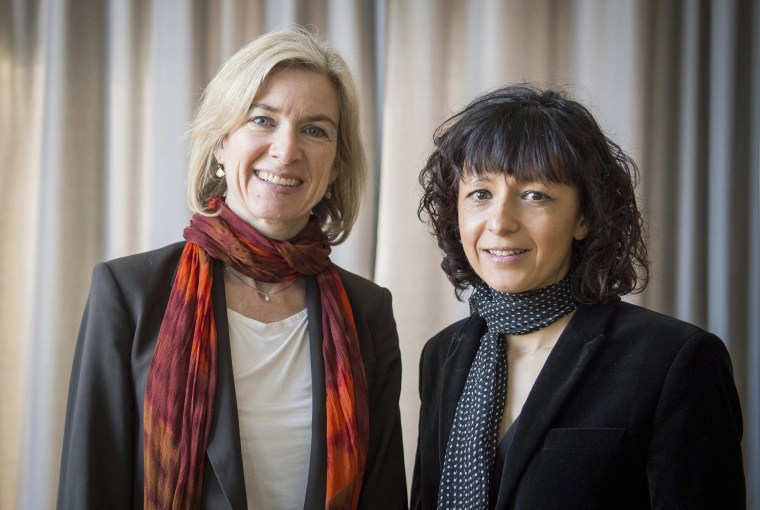LONDON — Two women were awarded the Nobel Prize in chemistry Wednesday for their pioneering work on genome editing, which has the life-saving potential to be used to cure genetic diseases.
"This year’s prize is about re-writing the code of life,” said Secretary General Göran K. Hansson for the Royal Swedish Academy of Sciences, as he awarded the prize to American biologist Jennifer Doudna and French microbiologist Emmanuelle Charpentier.
Only five women have previously won the chemistry prize, which has been awarded 111 times between 1901 and 2019 to 183 people.
Doudna and Charpentier developed a type of genetic scissor called the CRISPR/Cas9 used "to change the DNA of animals, plants and microorganisms with extremely high precision," according to the chemistry prize committee.
The "revolutionary" method has contributed to new cancer therapies and has the potential to be used in curing inheritable diseases.
"It has not only revolutionized basic science, but also resulted in innovative crops and will lead to ground-breaking new medical treatments,” said Claes Gustafsson, chair of the chemistry committee, in a statement.
In addition to making major developments to genetic research, Charpentier told the news conference by phone that she hopes the prize encourages girls to pursue science.
“I wish that this will provide a positive message … to show them in principle woman in science can also be awarded prizes but more importantly, women in science can also have an impact for the research they’re performing,” she said.
Last year's chemistry award went to American chemist John B. Goodenough, British American chemist M. Stanley Whittingham and Japanese chemist Akira Yoshino for their development of the long-life lithium-ion battery.
The prestigious prize was established by the Swedish inventor Alfred Nobel who dictated in his will that it would honor “those who, during the preceding year, have conferred the greatest benefit to humankind.”
Download the NBC News app for breaking news and politics
Winners are given a Nobel diploma and medal, and share the prize money of 10 million Swedish kronor (more than $1.1 million).
The other prizes still to be delivered in the coming days are for outstanding work in the fields of literature, peace and economics.
The Associated Press contributed to this report.

